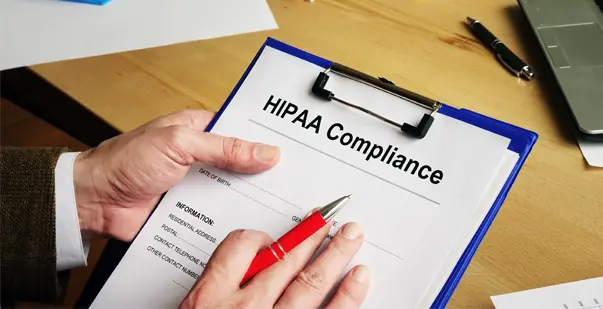Would it be okay if your medical information was accessible to strangers? Or if the world gets to know of your illness and medication? The answer is NO. Every person’s medical information is sensitive and should stay safe and secure. But people with the wrong intentions can use it against you. Over time the government developed HIPAA. This law caters to and rectifies the issues people face due to the loss of medical information. This article will discuss HIPAA and why every healthcare professional should get HIPAA certified.
Top 5 FAQ’s related to HIPAA
1. What happens if a HIPAA violation occurs?
A HIPAA violation involves the action of many parties. Penalties related to noncompliance ranges from $100k to $50k per violation. The maximum fine could go up to $1.5 million per year. Criminal penalties for a knowing infringement can range from 10 years in prison and/or criminal penalties up to $250,000. This is where the Office For Civil Rights needs to step in as it falls under Health and Human Services (HHS).
2. What is the difference between HIPAA and HITECH?
HITECH expands into The Health Information Technology for Economic. Clinical Health Act is a law that provides incentives for healthcare providers and hospitals. This law adopts the use of electronic health records (EHRs). HIPAA (Health Insurance Portability and Accountability Act) sets the standards to protect sensitive patient health information.
3. Can a healthcare provider share PHI without patient consent?
HIPAA permits healthcare providers to share PHI without patient consent. This information only goes out for treatments, payments, and healthcare operations. But, for any other reasons, you need written permission from the patient.
4. Are Business Associates also covered under HIPAA?
Yes, HIPAA also covers Business Associates. Business Associates provide certain services or functions on behalf of a covered entity. They also handle PHI, such as billing companies, data analysis firms, and cloud storage providers. All Business Associates work around a Business Associate Agreement (BAA) and follow HIPAA regulations.
5. Can a patient access their PHI?
Yes, patients have the right to access and receive a copy of their PHI under HIPAA.
6. What is a HIPAA breach?
A HIPAA breach is an unauthorized access, disclosure, alteration, destruction, or use of protected health information (PHI). This information leak could bring financial or reputational harm to the affected individual.
7. Can a covered entity disclose PHI to family members?
Yes, a covered entity can disclose PHI to family members, relatives, friends, or other individuals identified by the patient, if the disclosure is directly relevant to the person’s involvement in the patient’s care or payment for the patient’s healthcare.
8. Are there any special rules for sharing PHI with law enforcement?
Yes, there are special rules for sharing PHI with law enforcement. Covered entities can disclose PHI to law enforcement officials without patient consent in certain situations. Such situations could involve court orders or subpoenas. The disclosure can also prevent or lessen an imminent or severe threat to the health or safety of a person or the public.
9. What is the difference between the HIPAA Privacy Rule and the HIPAA Security Rule?
The HIPAA Privacy Rule focuses on protecting PHI and the rights of individuals concerning their PHI. HIPAA Security Rule focuses on the following:
- Integrity
- protecting the confidentiality
- availability of ePHI
It implements the use of technical and non-technical safeguards.
10. How can a patient file a complaint if they believe their rights under HIPAA stand violated?
Patients can file a complaint with the Office for Civil Rights (OCR) if they believe their rights under HIPAA stand violated. The patients can file a complaint online or via telephone.
Steps to finding an accredited HIPAA course
With the advancement in technology, the medical industry changes every few years. This change is why a HIPAA certification from a recognized institute is essential.
HIPAA Certification
The institute’s certification should follow the Health and Human Services guidelines. It is the body working on the right to information act.
The people who register for this course must access private health information.
Ensure the course offerings cover crucial topics such as Private Healthcare Information (PHI) and HITECH (Health Information Technology for Economic and Clinical Health Act). It could be an added advantage if you learn about the HIPAA rules, compliances, and penalties for not following the HIPAA guidelines.
Once you are HIPAA certified, ensure to file and keep the paperwork safely for at least six years. Find out if the institute where you have enrolled provides you with renewal options.
Conclusion
Information sits at the core of every discussion in today’s digital world. Free access to personal information makes individuals insecure. This point is where the government needs to step in and safeguard its people. We hope this article works as a guide in helping you understand the importance of HIPAA and the urgent need to gain certification with the American CPR Care Association. Our comprehensive course will give you complete knowledge of this topic. Please register on our website today and make no further delay.







